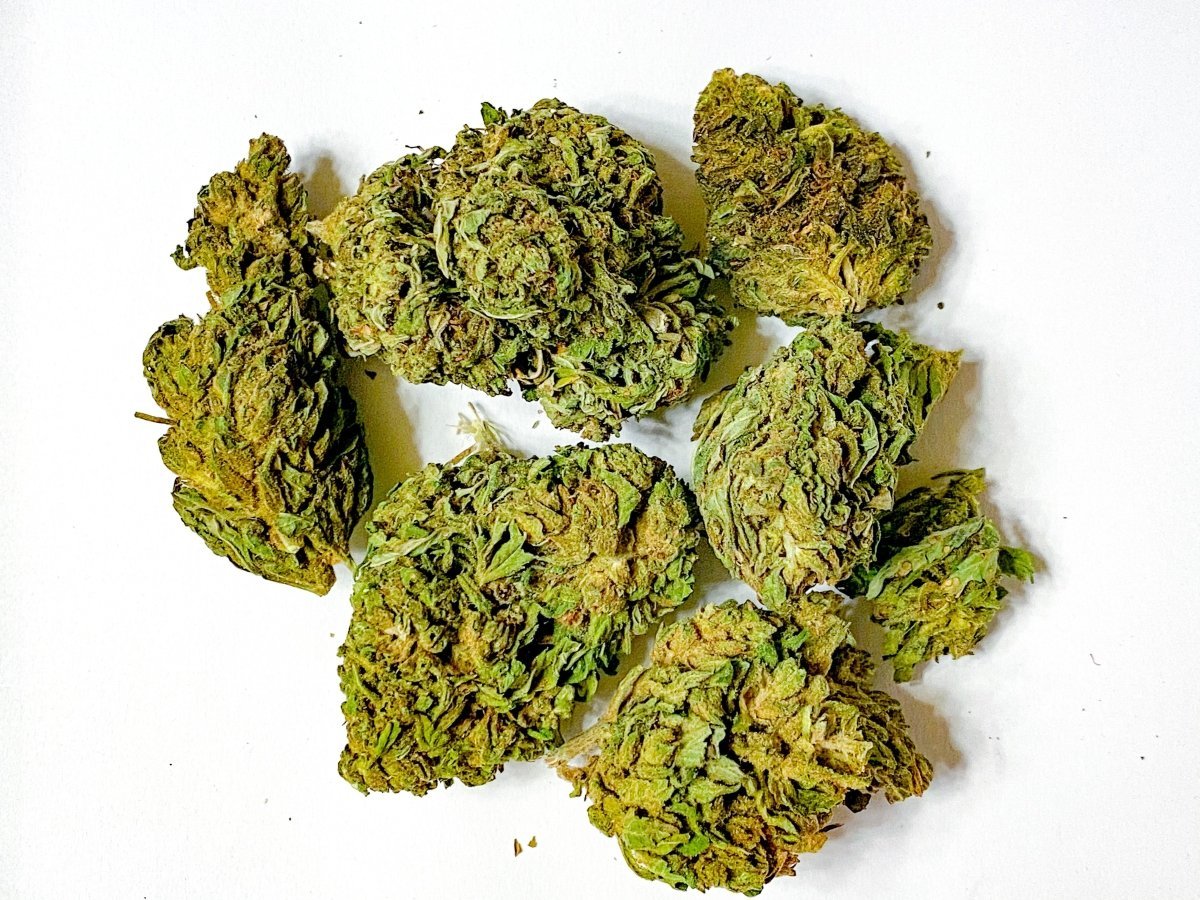The last few years have been a roller coaster ride in terms of cannabis regulation, and there hasn't been a whole lot of consistency. Now, with the scheduled vote on WHO drug scheduling coming up, the fate of CBD hangs in the balance.
So, who exactly is this WHO which makes designations as to which drugs are narcotics and which are not? The World Health Organization is an agency belonging to the United Nations and is responsible for public health globally.
One of the first things to understand about the global scheduling of drugs is that a lot of current legislation is set according to the Single Convention on Narcotic Drugs 1961, a treaty signed by 186 governments as of 2018. It prohibits the production and supply of narcotics, including - because of how its scheduled - cannabis.
To learn more about cannabis, subscribe to the Medical Cannabis Weekly Newsletter
It should be noted that the Single Convention does not act alone, and member countries are also required to have their own drug policies, so long as they are in line with the Single Convention. As part of this, the World Health Organization, through the Commission on Narcotic Drugs, is an office that can add, transfer, or remove drugs from within a specific scheduling class, of which there are four. Scheduling goes as follows:
- I – Drugs that are considered addictive and with a high risk of abuse (including cannabis and heroine).
- II – Normally used medical substances with a low risk of abuse.
- III – Preparations made from schedule II substances, as well as those that use cocaine.
- IV – The most dangerous drugs listed in schedule I, considered particularly harmful and with little to no medical or therapeutic value. This also includes cannabis.
In the 1971 Convention on Psychotropic Substances, a separate set of scheduling guidelines for different substances was made.
- I - Substances with a high risk of abuse, which pose a major threat to public health, and which have little to no therapeutic value. This class includes THC.
- II - Substances with a risk of abuse, which pose a major threat to public health, and which have a low to moderate therapeutic value.
- III - Substances with a risk of abuse, which pose a major threat to public health, and which have a moderate to high therapeutic value.
- IV - Substances with a risk of abuse, which pose a minor threat to public health, and which have a high therapeutic value.
In the last few years, as different countries have changed their laws, the question of this scheduling has come into play.
What's been going on recently?
In 2019, following the WHO Expert Committee's 41st meeting, it was recommended that cannabis – along with other cannabis related substances – be rescheduled. The rescheduling vote was postponed in March of 2019 by the Commission on Narcotic Drugs in its 62nd session, to give member countries more time to prepare. When the 63rd session came around, it was postponed again in early 2020, to be reconvened in December 2020, when the vote will be made.
All member state countries are conducting informal meetings and discussing recommendations. The meetings focus on different points of the law. Two have been held already, and another is scheduled for October, and will be open to stakeholders as well.
The World Health Organization Now Endorses CBD
What were those recommendations?
In 2019, the WHO made a very direct recommendation for cannabis to be rescheduled, and that further clarity should be provided on cannabinoids like CBD.
The UN's Commission on Narcotic Drugs monitors the situation and is the office to make amendments to the current scheduling system – which is where the WHO recommendations come in. In WHO's 2019 recommendation to the CND, besides rescheduling cannabis and looking at individual cannabinoids rather than cannabis as a whole, it also recommended taking resin off the schedule IV listing for the Single Convention.
Another recommendation is to remove THC from scheduling for the Convention on Psychotropic Substances, and add it in as a schedule I substance for the Single Convention on Narcotic Drugs, essentially taking the place of the whole cannabis plant, and leaving off the rest of it. Clearly, there is no potential global legislation just yet to take THC off this listing, or to lower its place on it.
This is strange to me as THC also is known to have many health benefits – just as much shown in research as CBD – and yet they are still being overlooked in light of the fact that the substance has a positive effect on how people feel. It should also be noted that while we sit here discussing cannabis, cocaine preparations have been sitting pretty in schedule III of the Single Convention the whole time, and somehow this hasn't earned the ire or even attention of anyone.
Perhaps this, too, will be sorted out in the next voting session. The WHO made a further recommendation concerning cannabis extracts, saying they should be allowed to have up to .2% THC without being scheduled by either convention, which sets standards for the international trade of products like CBD.
Come December, we'll all find out if these recommendations will officially and legally be taken up by the CND.
What's the issue?
The biggest issue in trying to set this policy is in pacifying (or at least accommodating) (or at least taking into consideration) the needs and desires of many different countries with their own industries, traditions, beliefs, and laws. Think of countries like Canada or Uruguay, or even Spain, compared with Japan or Iran when it comes to current cannabis laws and feelings toward the plant. It's a massive difference in literally every aspect of how cannabis is looked at and used.
Iran Still Hands Out Death Sentences for Cannabis
Creating legislation to govern these very different countries and perspectives (with consideration with cross-border trading) makes it an arduous procedure. Setting new drug laws in a single country can take years because of fighting between different political parties and interest groups. This time around, it must be done with 186 state parties in mind. If it has the same heavy handedness that went into instituting these policies in the first place, it might not go over as well today, as countries seem to feel more at ease with breaking with international policy (think of the UK leaving the EU).
This is one reason cited for the delays, as it wouldn't be in the best interest of the UN to allow a vote when the outcome could be very contentious.
Another issue is in how well the different parties understand the consequences involved on all levels with regard to these recommendations. How moving a substance from one schedule to another can result in changes to international trade, and so on. In fact, one interesting example of how these recommendations can largely affect a geographical region, is with the Caribbean.
Two of WHO's recommendations include 5.1 which deals with the acknowledgement of cannabis as a medicine, and 5.4 which deals with removing the term 'extracts and tinctures of cannabis'. Between these two points, governments in the Caribbean can muscle further in their legal bases for establishing medical programs on some of the different islands. This is big business in this region – or could be – and how these recommendations are taken will play a big role in the next steps taken for these countries. This, of course, would have to be understood by the other member governments as an aspect of the recommendations.
For? Against?
This is more or less predictable, although these lists are certainly not all inclusive.
Against (or mostly against): Russia, Singapore, Japan, China, Nigeria, Egypt, Iran, Kenya, Sudan, Brazil, Palestine.
For (or mostly for): EU (as well as several individual EU countries), Mexico, Uruguay, South Africa, Jamaica, Canada, Mexico, Switzerland, US, UK.
Conclusion:
With so much progress made in the CBD industry, it would be sad to go back so many steps. It would have a massive impact on the CBD industry as a whole if CBD is scheduled as a narcotic, essentially crippling what has sprouted out in the gray area of right now. In fact, it would be a pretty big blow in the fight to legalize cannabis altogether. With such strong opinions on both sides, it's hard to call this one. We'll have to wait until December to find out what the future is for cannabis.
Thanks for stopping by CBD TESTERS, your hub for all things cannabis-related. Stop by regularly and make sure to subscribe to the Medical Cannabis Weekly Newsletter to keep up-to-date on all the most interesting industry topics.
Resources:
The Endocannabinoid System Explained (Why Cannabis Is Good for Our Bodies)
Everything You Need To Know About CBD Isolate (a deep look into hemp extracts)
Not Just For Getting High (the underreported health benefits of THC)
Cannabinoids 101 – Spotlight on CBN (Cannabinol)
Your Complete Guide to EU GMP-Certified CBD Isolate and Distillate – Spotlight on the regulated EU market
Everything You Need To Know About CBG Isolate
Newest Cannabinoid Powerhouse – CBC – What Can It Do for You?
DELTA 8 THC Newsletter (The DELTA 8 THC Weekly Newsletter)
The CBD Flowers Weekly newsletter (your top resource for all things smokable hemp flowers)
The Medical Cannabis Weekly newsletter (International medical cannabis business report)
The Legal Landscape Of CBD Hemp Flower In Europe
Regulators Go After Smokable Hemp Flower – What Does The Future Hold?
The Complex Issue of Cannabis and Hemp Business On Tribal Land
Government Assistance Options for U.S. Hemp Farmers Affected By COVID-19













